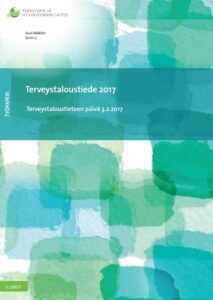By Dr Lien Nguyen, and Ismo Linnosma, Centre for Health and Social Economics, National Insitute for Health and Welfare (THL)
On the Health Economics Day last month in Finland, there were eight selected health economics presentations in the afternoon, one of which was from the Finnish members of the EXCELC team. Ismo Linnosmaa presented some findings from the study of self-assessed quality of life (QoL) among Austrian, English and Finnish people. Data used in the study were collected online last summer and sent to the team by Research Now. The results indicated that after having controlled for individual characteristics, there are no statistically significant differences in self-assessed QoL, though only between the English and Finnish people. Instead, the Austrian people were more likely to report better QoL than the Finns. In addition, the study lends support to the hypothesis of the positive association between QoL and income. People with higher income tend to assess QoL as very good or so good it could not be better. As the reasons behind the findings of differences in QoL between the three countries are not known, the Excelc team plans to investigate the theme further in the near future.
Now. The results indicated that after having controlled for individual characteristics, there are no statistically significant differences in self-assessed QoL, though only between the English and Finnish people. Instead, the Austrian people were more likely to report better QoL than the Finns. In addition, the study lends support to the hypothesis of the positive association between QoL and income. People with higher income tend to assess QoL as very good or so good it could not be better. As the reasons behind the findings of differences in QoL between the three countries are not known, the Excelc team plans to investigate the theme further in the near future.
The Health Economics Day (Terveystaloustieteen päivä) is an annual seminar traditionally held in February in Finland that brings together health service experts, policy makers, researchers and people interested in health economics. The usual programme of the day is divided into two parts. In the morning, invited speakers give talks on topics that are both topical and relevant from the perspective of health economics. The afternoon programme is composed of presentations of researchers presenting and discussing the most recent findings from their own research in health economics as well as organized sessions on some important topics in health economics.



